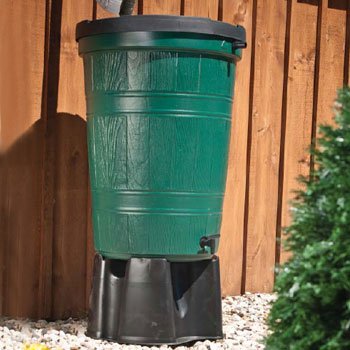|
|
|
 |
Gravity Feed / Rain Barrel Drip System
(Other names include Low Flow Systems)
This system is different from other irrigation systems because it uses gravity instead of pumps or power to produce water flow. The most common problems (headaches) with gravity systems are the very low PSI level and unequal water disbursement. More water will be released through the emitters closest to the barrel in a shorter amount of time since PSI will usually decrease as water travels down the line. In fact, with a long run of hose, emitters at the end of the run may not discharge any water at all. Therefore emitter selection and barrel location is key. The system kit offered below utilizes drip emitter hose with in-line emitters molded into the inside wall of the micro tubing. A large inlet filter along the length of the dripper prevents particles from entering the line. A good way to promote higher amounts of flow is to select emitters that operate with very low PSI, keep your drip tubes short, and place the barrel off the ground.
Barrel Location

Rain Barrel |
It is best to place the barrel at least 8” above the ground. Barrels that are placed on the ground generally can produce a decent flow as long as the barrel is full. However once the water levels lower the flow starts to decrease. You gain pressure by elevating the source of water (the barrel) above the drip lines. A system will gain about .433 PSI for every foot the water source is located above ground. So a really efficient system would need the water source located several stories high. However, the most common use of a rain barrel or gravity control system is as an eco-friendly watering source rather than an efficient irrigation system.
If you would like to give this simple method a try, maximize your results by making changes in the location and size of the bucket and the number of lines you attach. Through trail and error, you can design a layout that will fit your needs. |
|
|
|
Copyright © 2010 IrrigationRepair.com - All Rights Reserved |
|